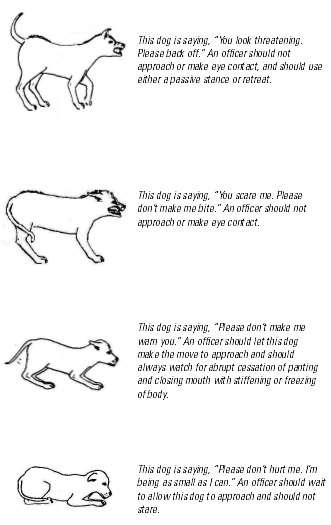All Police Shootings of Dogs Have Been Justified, Says Houston Police Department

Most news stories of police shootings of dogs tend to be reported in a vacuum. Even when reporters interview outraged witnesses and discover that the offending pooches — almost invariably described as "pit bulls" — seem to attack officers lightning-fast, under improbably circumstances, after years of restrained behavior, the shootings are usually treated as isolated incidents. ButScott Noll of KHOU did something a bit different by asking the Houston Police Department how often its officers felt compelled to shoot dogs, and what the outcome was in those cases. The answer? Well, Houston cops shoot a lot of dogs, and they never make mistakes.
From KHOU:
In fact, the department said it has ruled all 187 officer-involved shootings of dogs since January 1, 2010 as justified.
According to departmental records, 121 of those dogs died.
HPD declined to talk about the cases on camera, citing a pending lawsuit arising from one of the shootings.
However, a police spokesman said departmental policy authorizes officers to use any force necessary to protect someone in imminent danger of an attack.
But the 11 News I-Team found a trail of heartbroken dog-owners that stretches beyond city limits.
A review of cases from across the Houston-area revealed at least 228 dogs shot by police and deputies since 2010.
Out of that number, 142 dogs died.
All of the cases were justified? KHOU quotes Sgt. Joseph Guerra of the Precinct 6 Constable's Department expressing a little skepticism of the clean bill of health the department and its neighbors give themselves. "We need to get those officers involved in some mandated training in how to defend before going to deadly force," says Guerra, who demonstrates non-lethal techniques for distracting dogs.
The American Society for the Prevention of Cruelty to Animals is officially very down on police justifications for what has been a wave of shootings of dogs in recent years:
Policies that require only that an officer "feel" threatened set a very low threshold for justifying the killing of dogs. In virtually all cases we have examined, internal reviews of dog shootings have ruled them to be justifiable under existing policies, even though several cases have resulted in substantial civil judgments against police departments for wrongful destruction. Such incidents not only jeopardize the lives of companion animals, but also undermine the reputation of law enforcement agencies in the community.
Police rarely receive any training that would allow them to rapidly and realistically assess the degree of danger posed by a dog; nor are they routinely informed about or trained to use any of the wide variety of non-lethal tools and techniques available to them as alternatives to shooting.
And yes, police shootings of dogs have been a sufficient trend to elicit a formal report from the U.S. Department of Justice's Community Oriented Policing Services last summer. The Problem of Dog-Related Incidents and Encounters pointed out that "A recent poll revealed that approximately 53.5 percent of owners consider their dogs family members, another 45.1 percent view them as companions or pets, and less than 1.5 percent consider them mere property" on the way to emphasizing that Americans like their dogs and so killing them as a matter of casusl policy upsets people. The report also emphasized that serious dog bites are rare, and no particular breed is especially dangerous, so police have little reason to feel fear out of hand when encountering your average canine. The report even offers some examples for interpreting doggy body language. It ultimately concludes that, dogs being an important part of American life, police might consider taking the time to learn how to deal with them.
Shooting a dog should always be the option of last resort. The safety of fellow officers and bystanders is put at risk in such situations, and when a law enforcement officer shoots a dog that does not constitute a serious threat, community trust is eroded and the department is opened to potential lawsuits and other legal action.
Somebody send a copy of that report to the Houston Police Department.


Show Comments (44)